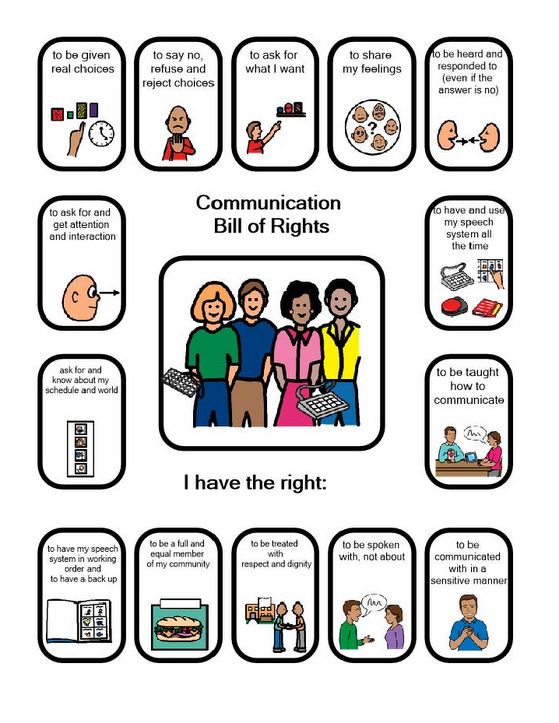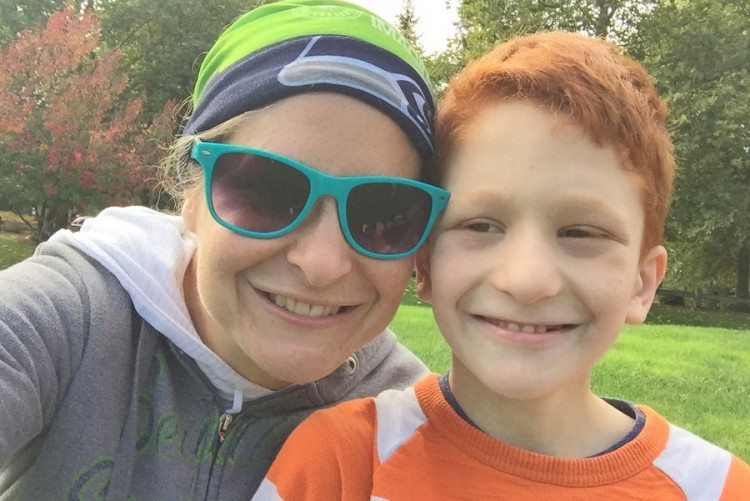About a month ago, during his seven-minute bus ride home, my son, Nate, was punched in the head. A boy from school, someone who didn’t know Nate well, misinterpreted his request for a high-five and responded by punching him. Nate got off the bus, clearly upset and visibly shaken. He tried to tell me what happened, but his language is so limited all he could tell me was “high-five.” I had to rely on the large welt and goose egg on his face to understand that something bad had happened.
Of course, I immediately contacted the school, and an investigation was opened. After a few weeks, the issue was resolved. Nate was OK. The boy admitted what he’d done, he begged Nate’s forgiveness and gave the high-five Nate was still really eager to get. Nate considers this boy his friend now and has completely moved on.
I have not moved on.
I am not over it, and I definitely don’t feel like giving the head-puncher a high-five. Instead, I find myself obsessively and achingly aware of how vulnerable my son is. And I’m scared. He’s friendly, he’s small and he can’t speak very well. He has unusual behaviors and sometimes misreads social cues.
I worry he will often be misunderstood and feared, and he might always have a hard time telling someone if he’s been hurt. For a mom who is committed to encouraging Nate’s independence and inclusion in the general community, this is hard stuff to accept.
A Bureau of Justice Statistics report found that “persons age 12 or older who had disabilities experienced 1.3 million nonfatal violent crimes in 2012,” which included crimes such as aggravated assault, rape/sexual assault and simple assault.
I can’t accept that level of risk, but I also can’t protect Nate every minute of every day. It’s impossible, and it’s not the kind of life I want for either of us.

Nate’s school has since introduced him to the concept of self-advocacy. They are teaching him his rights and showing him how to assert himself. They are spending time each day explaining these concepts in a way he understands.
He has a right to ask for what he wants.
He has a right to say no.
He has a right to be a full and equal member of his community.
This is powerful stuff and critically important. They are the basic rights most of us take for granted every day. I want Nate to understand, in whatever way he’s able, that he deserves to be treated well and deserves the same choices, respect, consideration and expectations of safety as everyone else. Armed with that information, I hope he can better protect himself, defend himself, respect himself and safely venture into the world independently.
I’m not sure how self-advocacy could have helped Nate during his altercation on the bus. It’s likely no amount of self-advocating will keep him safe all the time. However, I feel confident that teaching Nate his rights is the difference between him getting off the bus feeling like he might have deserved to be punched, versus getting off the bus feeling outraged that someone had hurt him. I want Nate to feel deep in his heart he is a person who deserves good things. He knows he’s different than the other kids, but I want him to know how little that matters. I want him to know he deserves kindness, patience, choices, friendships, safety and even high-fives if he wants them.
There are few feelings worse than finding out someone hurt your child. My immediate instinct was to make sure Nate was never in a situation where he could be hurt again. My husband’s immediate instinct was to track down the perpetrator and show him what a punch in the head really felt like. Fortunately, we both resisted our immediate instincts, and with the help of his school, instead focused on what we can do to arm Nate with the skills he needs to keep himself safe.
Nate will be an active, vital and contributing part of this world. I’m committed to it. A bad incident on the bus will not derail us. Teaching him to self-advocate (and knowing his worth) is one step of many to make our vision for his future a reality.
A version of this post originally appeared on Informing Families.

